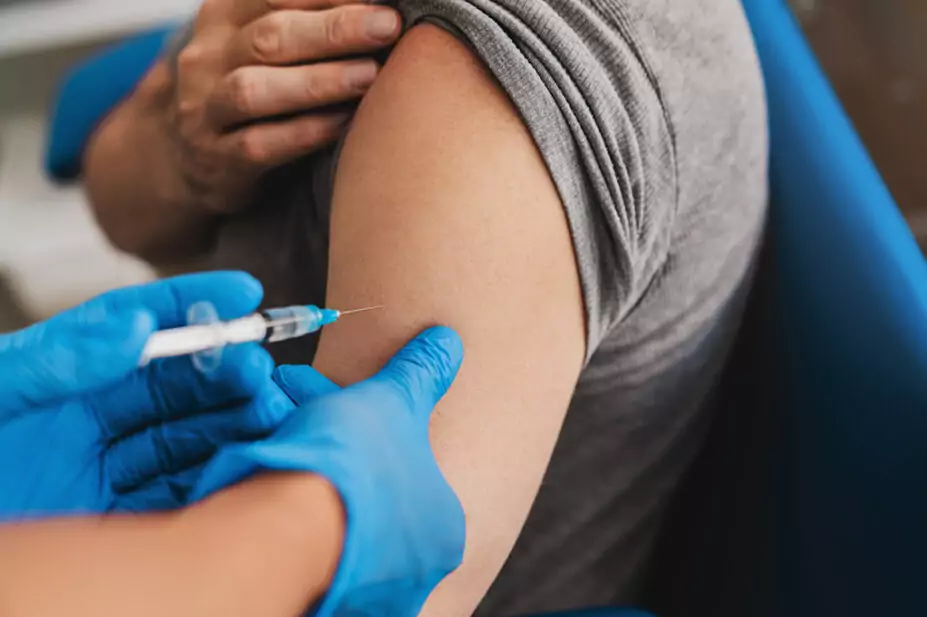
Shutterstock.com
Fewer than 5,000 people in England have been prescribed the novel anticholesterol drug inclisiran (Leqvio; Novartis) in primary care since its approval by the National Institute for Health and Care Excellence (NICE) in October 2021, NHS data show.
A freedom of information request (FOI) submitted to the NHS Business Services Authority (BSA) by The Pharmaceutical Journal has revealed that 4,549 people were prescribed inclisiran in primary care in England between October 2021 and July 2023.
This falls short of NHS England’s initial target for 300,000 patients to be using the drug by October 2024.
Inclisiran, a new type of cholesterol-lowering treatment, uses RNA interference to boost the liver’s ability to remove harmful cholesterol from the blood.
It can be given in primary care as a twice-yearly injection and is approved by NICE for secondary prevention of cardiovascular disease for those with persistently high low-density lipoprotein cholesterol (LDL-C) concentrations, despite maximum tolerated statins with or without other lipid-lowering therapies or when people cannot take statins.
In September 2021, NHS England announced a “world first” population-level commercial arrangement with Novartis to make inclisiran available from GP surgeries to patients in England, estimating that around 300,000 people will receive the drug by year three of the rollout.
The NHS BSA clarified to The Pharmaceutical Journal that the data do not include instances where a GP practice administered inclisiran but did not submit an FP10 prescription form to the NHS BSA for payment.
There has been controversy surrounding the use of inclisiran in primary care since its NICE approval.
In a joint statement published in December 2021, the Royal College of GPs and the British Medical Association urged caution about prescribing inclisiran because they said long-term data on cardiovascular outcomes and safety were not available.
Sources on prescribing committees, who wished to remain anonymous, have told The Pharmaceutical Journal that concerns about efficacy and safety were only part of the story.
GPs have also expressed concerns over the amount of funding available to organise treatment with inclisiran. The BMJ reported in August 2023 that multiple local medical committees in the south of England were telling GPs not to initiate the treatment and instead to refer patients to secondary care until additional funding arrangements are in place.
Information obtained via FOIs sent by The Pharmaceutical Journal to integrated care boards revealed that prescribing committees had said the paperwork to obtain the correctly discounted price for inclisiran in primary care was confusing and highly bureaucratic, generating more workload.
Commenting on the prescribing figures, Michael Mulholland, honorary secretary of the Royal College of GPs, said: “GPs absolutely want to do our best for patients who have raised lipids and to reduce their cardiovascular risk.
“However, Inclisiran is still a ‘black triangle’ drug — one for which full safety data is not yet available – and there are insufficient resources within primary care to monitor its effects. We’d usually expect such a drug to first be prescribed at specialist hospital clinics, where patients can be more easily monitored.
“Before GPs become responsible for prescribing inclisiran, we need assurance that the evidence base on its safety is secure, and for the risks and benefits to patients to be clearly established.”
A spokesperson for the NHS commented: “The [COVID-19] pandemic underlined the importance of strong relationships between the pharmaceutical industry and the NHS, enabling medical innovations to reach patients faster and collaborating on shared challenges such as the medicines supply chain.”
They added: “Cardiovascular disease is the biggest cause of avoidable mortality in England and inclisiran is a clinically effective, NICE-recommended cholesterol drug that provides an additional treatment option for NHS patients.”
In a statement, Novartis said that it “stands firmly behind the [inclisiran] deal” and “remains committed to the ambition to improve patient outcomes in the UK, reducing health inequalities and easing pressures on the healthcare system”.
In another statement made on 18 December 2023, Novartis said: “Novartis and our partners continued to be committed to the outcomes of the population health agreement. There has been an increase in uptake of the medicine in recent months, with sales data showing closer to 18,000 doses [of inclisiran].”
A spokesperson for the Department of Health and Social Care said: “The ‘Life sciences vision‘ sets out the UK’s ambition to create a commercial environment where the NHS can strike flagship collaborations with industry and ensure NHS patients have access to the latest and most innovative treatments and technologies.
“NHS England and Novartis continue to work closely together to roll out inclisiran to those who need it.”
NICE issued updated guidance on lipid modification on 14 December 2023, which introduces a new target for cholesterol levels for those being treated for secondary prevention of cardiovascular disease.
NICE said that it expects the guidance to lead to increased use of lipid-lowering treatments.
- This article was updated on 18 December 2023 to include additional comment from Novartis


